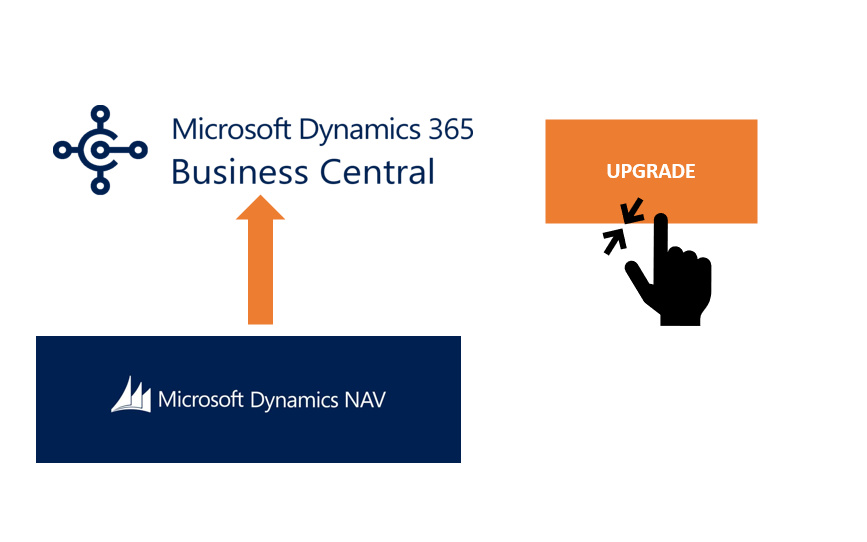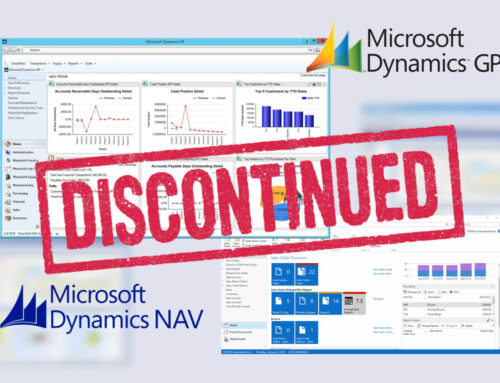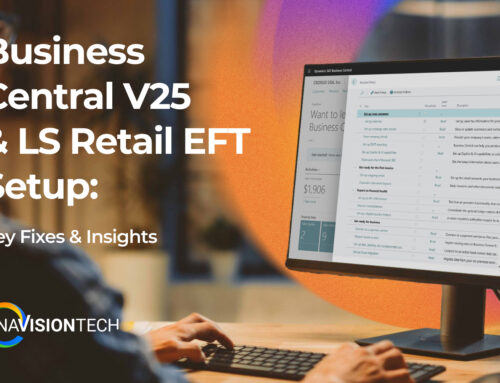Microsoft Dynamics NAV originates from
Navision, a suite of accounting applications which Microsoft acquired in 2002.
Microsoft Dynamics NAV is an enterprise resource planning (ERP) app from Microsoft. The product is part of the Microsoft Dynamics family, and intended to assist with finance, manufacturing, customer relationship management, supply chains, analytics and electronic commerce for small and medium-sized companies and local subsidiaries of large international groups. For modifications of the system, the proprietary programming language C/AL is used.
As a native international ERP, Microsoft Dynamics NAV is available with 43 official localizations The NAV solution is also compliant with IAS/IFRS.
The first window-based Navision versions from 1.00 to Dynamics 365 Business Central
- Navision Financials 1.00
- Navision Financials 2.00
- Navision Financials 2.50
- Navision Financials 2.60
- Navision Financials 2.65: Introducing the NAS (Navision Application Server)
- Navision Solutions 3.00
- Navision Attain 3.01
- Navision Attain 3.10
- Navision Attain 3.60
- Microsoft Business Solutions Navision 3.70
- Microsoft Business Solutions NAV 4.00
- Dynamics NAV 5.00
- Dynamics NAV 2009: (“6.00”) 2009, 2009 SP1, 2009 R2
- Dynamics NAV 2013: (“7.00”) 2013, (“7.1”) 2013 R2
- Dynamics NAV 2015: (“8.00”) 2015
- Dynamics NAV 2016: (“9.00”) 2016
- Dynamics NAV 2017: (“10.00”) 2017
- Dynamics NAV 2018: (“11.00”) 2018, (“12.00) 2018 R2
- Microsoft Dynamics 365 Business Central: (“13.00”)
- Microsoft Dynamics 365 Business Central Spring Release: (“14.00”)
- Microsoft Dynamics 365 Business Central Wave 2 (“15.00”)
- Microsoft Dynamics 365 Business Central Wave 1 2020 (“16.00”)
- Microsoft Dynamics 365 Business Central Wave 2 2020 (“17.00”)
Microsoft Dynamics 365 Business Central (D365BC) is an enterprise resource planning (ERP) system from Microsoft. The product is part of the Microsoft Dynamics family, and shares the same codebase as NAV and NAV’s C/AL language is being phased out in favor of the new AL language.
The product is primarily a web-based software as a service solution accessed via dynamics.com, though presently there is an on-premise version available, which included the option to use the NAV role-tailored “thick” client through version 14, while versions 15 and later are web-only.
D365BC is primarily based on the codebase for Microsoft Dynamics NAV, first published as
Navision, which Microsoft acquired in 2002.
Business Central is available in the cloud Software as a Service (SaaS), on-premises, and in hybrid deployment.
Microsoft Dynamics 365 Business Central (D365 BC) is a complete Enterprise Resource Planning (ERP) from Microsoft for the SMB segment.
Features:
Microsoft Dynamics 365 Business Central delivers integrated functionality as below:
- Financial management
- Supply chain management
- Relationship management
- Human resource management
- Project & Resource management
- Warehouse management
- Service Order Management
- Manufacturing
- Power BI
- KPi
Major Benefits of Upgrade Microsoft Dynamics NAV to Dynamics 365 Business Central
- You can save 40% on the list price if you upgrade/transition by June 30, 2021. If you are current paying your NAV Business Ready Enhancement Plan (BREP)
- Embedded Power BI Advanced Analytics
- Get access Dynamics 365 Business Central anywhere and at any time through Web, mobile and tablets
- Seamlessly Integrate with other Microsoft applications such as Office 365, Microsoft Teams and Power Automate
- Cortana Intelligence, Predictive analytics and forecasting tools now available at your fingertips, you can get better insight into your data: Social Listening: Find out where your products and customers are appearing on social media. Inventory Forecasting: Let Cortana predict your future sales. Cash flow prediction: predict future cash flow Development access to the forecasting algorithm within Azure Machine Learning
Try Navisiontech Support today! We offer 2 FREE hours of support for nearly ALL versions of Dynamics NAV, from version 3 to Business Central. Our support team is US based and will provide support not only for your ERP system, but also for SQL Server, EDI, supply chain management tools, and even code-level support.






Leave A Comment